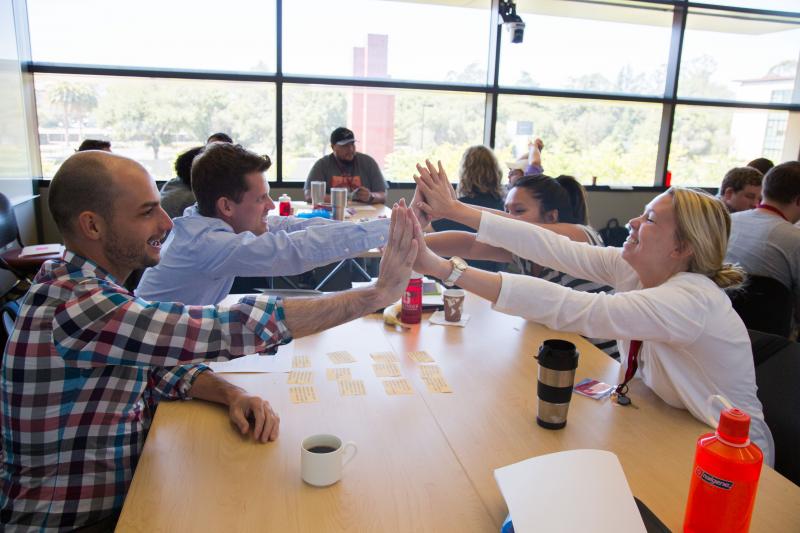Partnerships
CSET takes pride in its work as a research center and as an innovator in professional learning experiences for teachers.

At CSET we recognize that supporting excellence in teaching is a massive undertaking requiring a large community of people committed to a vision of excellent teaching that leads to more powerful learning for all students. We participate in the community committed to excellence in teaching through partnership work.
Working in partnership is an active, dynamic approach to solving persistent problems of practice. When partnering, CSET seeks to work with others who share our values about keeping equity for learners at the center of the work while emphasizing the roles of teacher leadership and instructional improvement.
We seek opportunities to partner in ways that enhance opportunities to bridge research and practice while offering opportunities to leverage the strengths and perspectives of each partner to achieve goals beyond what we could accomplish individually.
How CSET Works in Partnership
Learn about CSET's partnership with nanofacilities at Stanford University and how, together, we collaborate to bring professional learning to middle school teachers.
Our Ongoing Partnership with Stanford Global Studies
As featured in the Stanford Report, CSET partners with Stanford Global Studies to bring rich content from Stanford faculty and combine it with pedagogical expertise to History and Social Studies teachers.
Froggers School Program
Developed by Dr. Lauren O'Connell as a partnership with K-12 science teachers to bring dynamic, meaningful, and engaging learning experiences to the classroom. Learn more.
CSET currently partners with others in four different ways.
| Type of Partnership | Key Characteristics | Examples |
|---|---|---|
Research Practice Partnerships |
|
|
Research Collaborations |
|
|
Content Area Partnerships |
|
|
Organizational Alliances |
|
|
